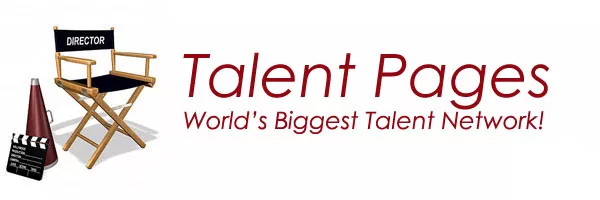Acting Auditions
What are Auditions ?
Auditions - Interview for actors conducted by a director or a casting director in order to determine if the actor fits the role. The actor should prepare a monologue or in most cases read from the project's sides.
Usually after a successful audition, the actor would be asked to come again for a callback.
An audition is a sample performance by an actor, singer, musician, dancer or other performing artist. It is used in the casting process to demonstrate the level and range of a performer's talent, and functions as a job interview for the performing arts. A typical audition involves the performer displaying their talent through a previously-memorized and rehearsed solo piece: for example, a monologue for actors or a song for a singer.
Some auditions involve cold reading, or performing a script that the actor is not familiar with. This is similar to many dance auditions, in which the focus is on learning new choreography, rather than showcasing prepared work.
For smaller roles in a large production, mass auditions are held at which many inexperienced or aspiring performers, most without agents or manager show up. These are popularly known as cattle calls, since the hopefuls are often kept together in one large room like a herd. American Idol is doing auditions by using this technique, since there are so many auditions.
Auditions Advice from Casting Directors
Ask any casting director what matters most when an actor shows up to an audition. Most will say, "They need to be prepared." (Showing up on time can't hurt either.)
These should be obvious, but it's surprising how many actors make a bad impression with something as simple as inappropriate behavior. It can knock you out before you step into the ring. Remember: Casting directors already have the job — you don't. So you need to prove yourself to them, not the other way around.
Other suggestions we heard from CDs: Avoid unnecessary chit-chat. Don't linger in the room for too long after you read. Stay away from using most props. And avoid making physical contact with the casting director during your audition.
A feeling of desperation is another sure way not to get a callback. Never view an audition as nerve-wracking nightmare, or make it look that way. Consider each audition an opportunity: A chance to perform for an audience — albeit a small one. Or walk into the audition saying, "No matter what happens, I'll do the best I can today." Remember: The casting director is not here to judge you harshly; he or she simply wants to find the perfect person for the role. That could be you.
Actors sometimes seek out coaching for auditions, but primarily for large film/TV roles, or for admittance to an MFA program. Many believe it is worth the expense — if only for the boost in self-confidence. In last-minute emergencies, actors even resort to phone coaching, although that's not an ideal situation.
However, with or without coaching, one trap to avoid is too much preparation. Read the sides carefully but don't freeze your approach — you may be asked to change it. Longtime coach and acting teacher Craig Wallace says he never sends actors out 100 percent set for the audition. "If you're over prepared, you have no flexibility," he says. "And you don't know what 50 percent of the process is until you walk into the room.
"You can't have the piece controlling you. You have to leave room for the circumstances of where you're going to be."
Audition Tips !
- Come at least 15 minutes earlier to your cal time.
- Make sure not to eat at least two hours before your call time.
- Try not to talk with anyone in the audition room. Kindly ask them not to disturb your preparation. No, it is not rude, it is necessary.
- When you come into the audition, it is strongly recommended to arrive as the character. Remember that this is why you are here for. Your own persona can come out only after the casting director thanked you for coming.
- If you require to bring your own monologue, always choose something that feels familiar to you. Don't take inaccuracy risks when you auditioning. Leave the risks in your acting class.
- Choose a strong piece that don't exceed 5 minutes. A good efficient length would be 2-3 minutes.
- Remember that there was some action before the character begun to speak. Think what happen before your character speaks its first line. It will help you get into the character faster and most likely eliminate some disturbing butterflies.
- Don't rush your lines. Even if you feel you lost it. You are not a mind reader, and therefore don't know what the casting director is looking for.
- Many times the casting director would tell you to say your name to the camera. Sometimes this is the only thing you have to do in your audition. Don't take this thing lightly. It is the way you present yourself, even with one line that can get you the audition.
- BELIEVE.
ACTING AUDITIONS ARE ALWAYS FREE AT Talent Pages

